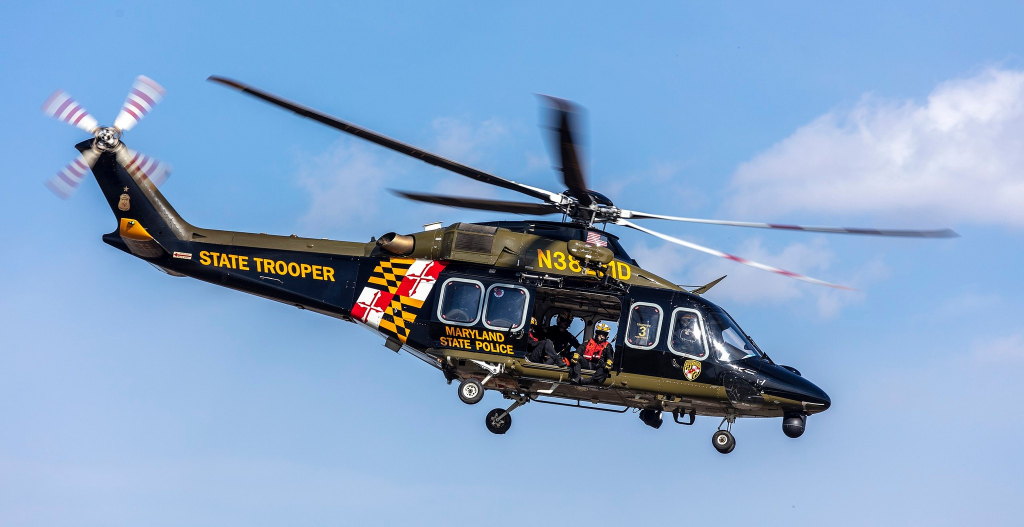Paramedics have been trained in blood transfusions.

Md. State Police Helicopter
Middle River, Md (KM) The flight paramedics on board Maryland State Police helicopters will provide another service to seriously injured patients who are flown to hospitals. “Whole blood is used for emergency transfusions when minutes are critical. And it’s now available on all of our Maryland State Police helicopters used in pre-hospital air medical response for critically injured patients,” says State Police spokesman Ron Snyder.
It’s a collaboration between the State Police, the University of Maryland Medical Center and the Maryland Institute for Emergency Medical Services Systems. “And this partnership provides Marylanders with increased care that reduces the number of disabilities and deaths from traumatic injury,”; says Snyder.
The “Blood On Board” project started in May, 2023 with the State Police helicopter Trooper 1 which is stationed at Martin State Airport in Baltimore County, and the Trooper 2 helicopter stationed at Joint Base Andrews in Prince George’s County. Snyder says it expanded to the remaining five State Police helicopters in July, including Trooper 3 which is stationed at Frederick Municipal Airport.
As part of the “Blood On Board” project, Snyder says personnel on board the State Police medivac helicopters have been trained in administrating transfusions. “There’s been extensive training for all of our flight paramedics throughout the state,” he says.
Snyder also says since May, more than 20 patients have received transfusions for serious injuries from vehicle and machine accidents, gunshots and stabbings and other incidents, and that has made a difference. “And they’ve already been several patients who may not have survived their injuries before reaching the hospital if they had received these blood transfusions,” Snyder says.
“The clock for the Golden Hour starts ticking at the time of the injury, not at the hospital arrival. If a patient’s condition worsens in the field, or they have cardiac arrest before arriving to us, their survival chances are markedly diminished,” says Thomas Scalea, MD, the Physician-in-Chief, R Adams Crowley Shock Trauma Center, System Chief for Critical Care Services, University of Maryland Medical Center. and Honorable Francis X. Kelly Distinguished Professor of Trauma Surgery at the University of Maryland School of Medicine, in a statement. . “Administering whole blood prior to a patient’s arrival at the hospital has been shown to improve survival in both military and civilian trauma situations. At Shock Trauma, we are excited that this life-saving therapy intervention is now available for critically ill and injured patients in Maryland and know that in some cases it will undoubtedly mean the difference between life and death.”
Snyder says this project is probably the first of its kind in the country.
By Kevin McManus